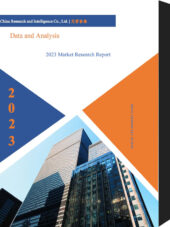Description
The telehealth market is witnessing a higher adoption rate owing to an increasing geriatric population, prevalence of chronic diseases, and higher government spending on healthcare. Telehealth has made it possible to provide better healthcare services by bridging the gap between doctors and patients. These factors are expected to drive the market, helping it expand at a CAGR of 14.1% during the 2017-2022 period.
Technology segment insights:
Remote patient monitoring (RPM) occupied a market share of 63% in 2017, being the most prevalent telehealth technology. Recent regulations in countries like the United States (U.S.), Canada, and the United Kingdom (U.K.), mandate the imposition of fines on readmission of patients within 30 days of discharge. These regulations, along with rising healthcare costs, are the significant drivers of RPM adoption. Mobile health (mHealth), having held a market share of 22% in the same year, shows a lot of promise in the wide distribution of medical information to both patients and medical practitioners. Video telemedicine accounted for a share of 15% in 2017.
Application segment insights:
The adoption of teledermatology is the highest among the application segments, due to the high cost of specialty healthcare. This segment includes dermatology and makes available advanced imaging technologies. Close on its heels are teleradiology (25%) and telecardiology (24%). Telecardiology is driven by the higher prevalence of cardiac ailments across the world, and specific heart conditions like cardiac arrhythmia which require constant monitoring over a long period. Cancer patients need regular check-ups, which may not be possible for patients who stay far from hospitals. Teleradiology is a boon for these patients, allowing them to lead healthy lives.
Regional insights:
North America has exhibited the highest adoption of telehealth technologies and occupied approximately 49% of the global market in 2017. The region has stringent healthcare regulations, along with a high incidence of chronic diseases and steep healthcare expenses for employers, all of which resulted in the broader implementation of telehealth. Significant government investments in developing telehealth infrastructure have led to the growth of the market in Europe. Currently, the region accounts for a 33% market share. Asia-Pacific, Latin America, and the Middle East and Africa are nascent markets which are expected to exhibit high growth in the future.
Companies covered:
1. McKesson Corporation
2. Medtronic Inc.
3. Cisco Systems
4. GE Healthcare
5. Allscripts Healthcare
6. Siemens Healthineers
7. LifeWatch AG
8. Philips Healthcare
9. Honeywell
10. Cerner Corporation
Customizations available



